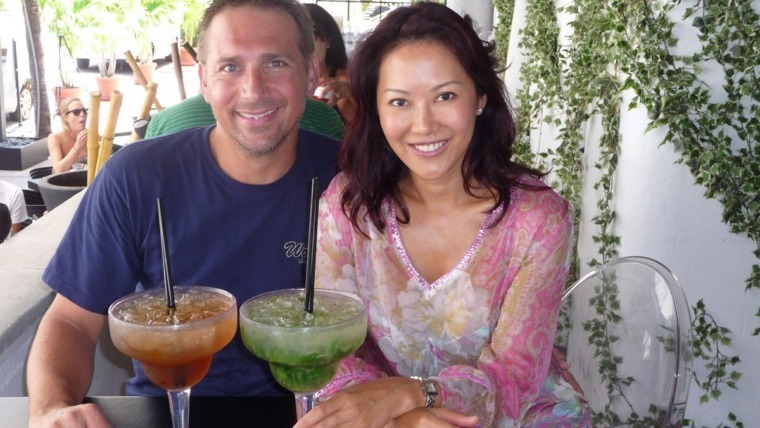
Written by Nikki Cox
Motherhood is profoundly fulfilling, but it is also the most physically, emotionally and mentally demanding activity anyone could ever do.
There is no doubt that some dads are great; fantastic with the kids, committed to mutual parenting, do their fair share around the house and are very supportive overall. But this isn’t always the case. If you add up both paid and unpaid work, the average mum works significantly more than her partner. And if you're a single mum, as one in five mothers in Australia are, you're getting little to no help at all.
Then, in the back of your mind your mum-brain is constantly on the go; to-do lists that never seem to end and always trying to remember one thing or another, forever distracting you and invading your ability to truly relax or take a breath.
To add to all of this is the constant anxiety, or worry, that comes with motherhood. Termed ‘hyper-vigilance’, it’s basically being in a heightened state of sensory sensitivity, where you are constantly in protection mode on behalf of your children, who are too young to do it for themselves properly, if at all.
No wonder mums constantly feel too drained and depleted to even consider regular physical activity as part of their day.
Having energy is essential to living well, being regularly active and getting the most out of life, but you can feel depleted for a myriad of reasons. Even if you are lucky enough to regularly eat well and get enough sleep, you can still feel a distinct lack of energy and zest for life.
Stress, worry, and anxiety are the biggest drains on your energy levels as a mum. While stress is fundamental to our survival, it is also possibly the most dangerous toxin your body faces every day. It can deplete you of the energy needed to live a healthier, more active life.
A disorganised, clutter-filled home is not only a symptom of stress but can also be another unnecessary source of stress because it has profound effects on your mood, self-esteem and, subsequently, your energy levels. This is not to say that your home must always be clean and tidy (a near impossibility when you have children around!), however, your home can easily become filled to the brim with 'things' you don't really need or want. Without even noticing it, we surround ourselves with unnecessary, energy-draining clutter; clutter which creates a negative, de-motivating environment for those living within it.

When you’re surrounded by more things than you can manage, it sends a message that your life is out of control, which then causes a cascade of negative emotions. For example, when looking at the state of your physical health, you can feel stressed at the lack of activity, guilty that you’re not as fit as you’d like to be, and confused as to what to do about it.
Fortunately clutter is one of the easiest life stressors to fix. Decluttering your house by throwing away old things provides fresh energy that can inspire you to start making positive changes in your life, such as getting fit and active.
Cleaning stuff out can be a hard task for some, however, especially if you haven’t done it for a while, but you will probably be surprised how many useless things you are holding on to, stressing yourself out with and losing energy from. Here are 7 simple steps to get going with decluttering that can fit into your busy mum-life:
- Start small, even if it's only with a single drawer or cupboard.
- Make decluttering a quick 15-minute weekly routine, and schedule it in.
- Get in the habit of putting things away where they belong, rather than ‘doing it later’, and ask the members of your household to do the same.
- Store away rarely used items, and dispose or donate unused ones.
- Use plenty of containers when storing items.
- Have friends help, as they aren't as attached to your things as you are.
- Teach your kids to be responsible for their mess, and follow your 'decluttering lead'.
In addition to managing clutter as a source of stress that siphons your energy and deters you from being physically active, it’s also a great idea to get a better understanding of the concept of energy, in order to identify what energises you and what depletes you.
Energy, in the realm of wellness, comes in four main forms: Physical, Emotional, Mental and Spiritual. Regularly examining each type of energy can help you make lifestyle changes that can have a positive effect on your energy levels.
Physical Energy
- Are you eating a balanced diet and taking supplements where needed?
- Do you take your time eating (where you can) in an unstressed state?
- Are you getting good quality sleep, when you do get it?
- Do you take the time to breathe deeply regularly?
- Are you well hydrated?
- How often do you move and exercise?
Emotional Energy
- Do you have strong and regular connections with friends, work colleagues and family?
- Do you stop to acknowledge, express and explore emotions as they are felt?
- What is the balance between your work and play? Does it suit your lifestyle?
- Are you able to easily find fun in your life? How often do you have a good laugh?
- Do you acknowledge, feel and express gratitude regularly?
- How often do you perform acts of kindness towards yourself and others?
Mental Energy
- Are you mentally challenged and stimulated enough?
- How often are you rewarded and/or acknowledged?
- Is your work environment uplifting?
- How regularly do you apply mindfulness techniques in your everyday life?
- When was the last time you had a meaningful conversation with someone?
Spiritual Energy
- Are you aware of your changed values after children?
- Are you connected with those values and make each decision with them in mind?
- How often do you connect with nature?
- Do you regularly tune in and listen to your instincts?
- What are your dreams? Are you progressing towards them?
It’s easy for mums to link their depleted energy levels to lack of sleep and stress, but as you can see, energy can leak from so many different places in our lives
Once you understand where your energy may be leaking from, identifying what changes you may need to make in your life to rebuild your energy levels becomes easier. Through this heightened awareness, you can start taking the necessary steps towards changing your thoughts, beliefs, habits or routines to plug the energy leaks in your life, thereby giving you what you need to be physically active more regularly.
[1] https://aifs.gov.au/facts-and-figures/work-and-family
[2]http://www.abs.gov.au/ausstats/abs@.nsf/0/F4B15709EC89CB1ECA25732C002079B2?opendocument
[3] https://link.springer.com/article/10.1007%2Fs10834-006-9052-5



